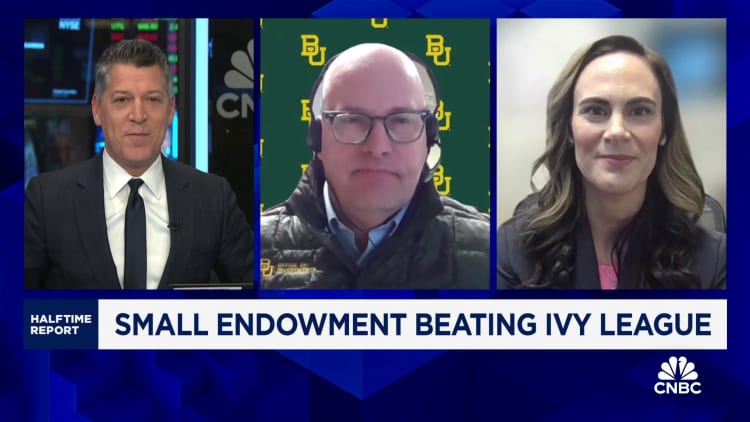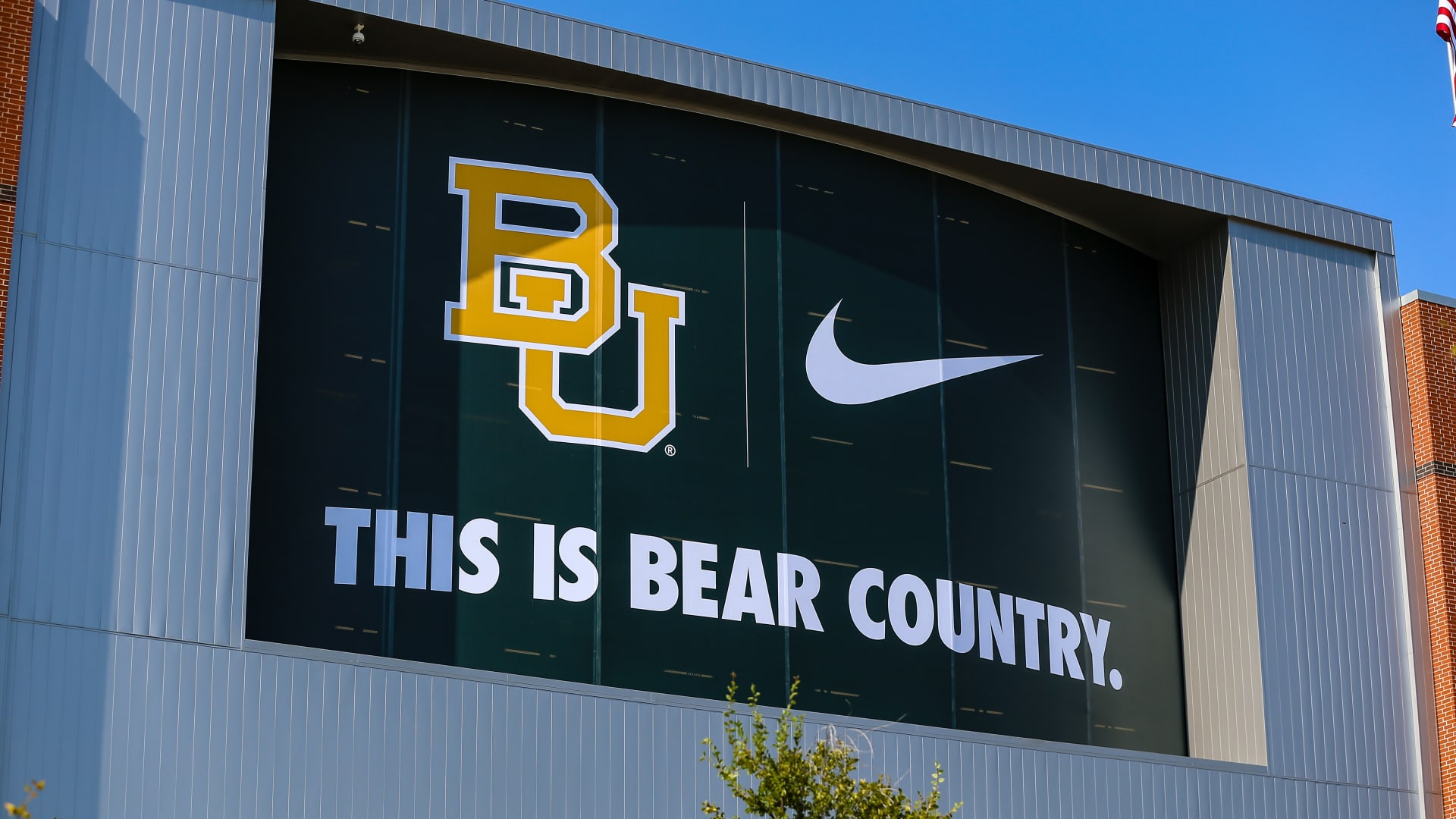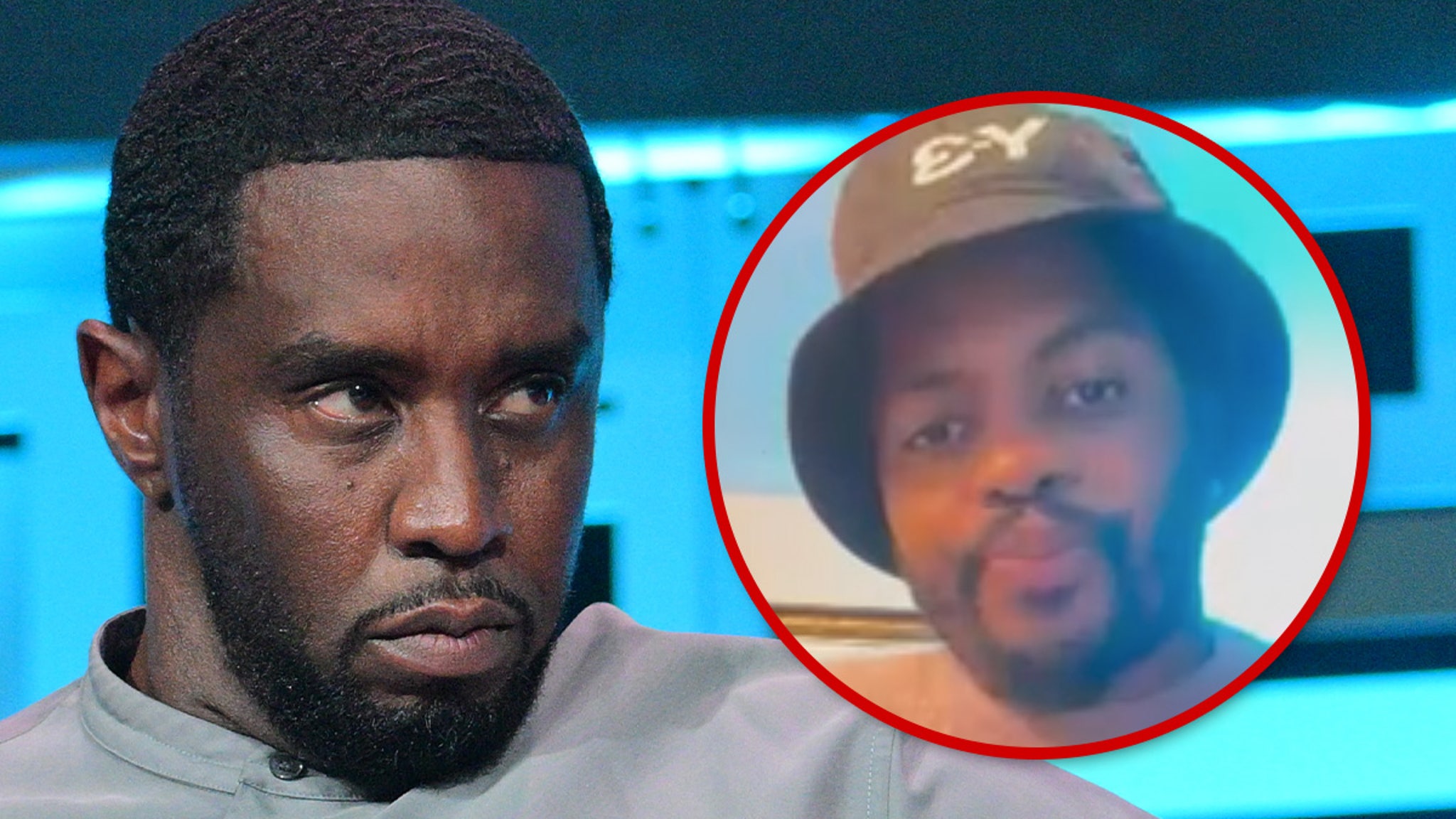
Watch out, Ivies, there’s a new endowment performer in town.
Baylor University’s $2 billion endowment — a fraction of those in the Ivy League — generated a 6.4% return for the fiscal year that ended June 30, outperforming the entire conference. Harvard’s endowment, the largest at $50.7 billion, returned 2.9%.
What’s more, Baylor’s annualized return of 10.9% over the past five years outperformed all Ivy League colleges except for Brown University, which recorded a return of 13.3% during that same period, according to the Wall Street Journal. Brown’s endowment in fiscal 2023 was more than three times higher than Baylor’s at $6.6 billion.
The key to Baylor’s endowment success, according to Chief Investment Officer David Morehead, is taking advantage of dislocations in the market.
“It’s really driven by the managers, and then if we, on the edges, are seeing … a dislocation, we could allocate more money into high yield, allocate more money into [emerging markets] — something like that,” the former trader told CNBC’s “Halftime Report” last week. “We’re really allocators.”
Morehead joined the university in 2011, and since fiscal 2012, Baylor’s endowment has more than doubled.
This increase comes as endowment returns have rebounded nationally. Endowment returns were up 7.7% in fiscal 2023, per the latest study by the National Association of College and University Business Officers and Commonfund. By contrast, returns fell 8% in fiscal 2022.
The latest gain, however, still comes up short of the returns seen in fiscal 2021, which was 30.6%. That’s the second-highest average return ever recorded since the NACUBO study began in 1974. The study’s highest return to date occurred in fiscal 1983 at 41.3%.
Morehead said that he and his investment team of four others focus on their portfolio’s liquidity as part of their strategy. Assessing those needs in advance, he explains, is what allows the team to take advantage of market dislocations as they happen.
In a statement to CNBC, Morehead noted that initial allocations into or away from a segment of the market are triggered by a move of 20% or more in either direction.
“We don’t care at all if the market is up or down 1-2% in a day — we’re long-term investors,” he said in the statement.
He also revealed to CNBC that his team is betting on helium, along with biotech and small caps, for the medium term.
The commodity, which is used for chip manufacturing and rocket launches, has faced supply shortages in recent years. With the semiconductor industry’s growth and the number of rocket launches at an all-time high, Morehead predicts demand will continue to rise and send helium prices higher.
“Our broader expectation is that the major tech companies will start to develop their own chips so as not to be beholden to Nvidia going forward,” he added.








